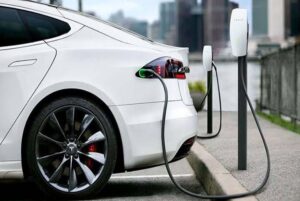IIT Kanpur has revealed a recent study challenging the claims that electric cars are more environment-friendly than hybrid cars and conventional internal combustion engine cars.
 The manufacturing, use and scrapping of electric cars is producing 15 to 50 per cent more greenhouse gases (GHGs) than hybrid and conventional engine cars, according to the report by IIT Kanpur’s Engine Research Lab.
The manufacturing, use and scrapping of electric cars is producing 15 to 50 per cent more greenhouse gases (GHGs) than hybrid and conventional engine cars, according to the report by IIT Kanpur’s Engine Research Lab.
In the per kilometre analysis, the purchase, insurance and maintenance of electric vehicles (EVs) are also costlier by 15-60 per cent. The study also showed that hybrid electric cars are the eco-friendliest.
The study was conducted by IIT Kanpur with the help of a Japanese organization on electric, hybrid and conventional cars. The study divided the cars into three categories — two foreign categories and one Indian category– to calculate the Life Cycle Analysis (LCA) and Total Cost of Ownership (TCO) of the vehicles.
The study conducted by Avinash Agarwal of IIT Kanpur found that Battery Electric Cars (BEVs) emit 15-50 per cent more greenhouse gases in different categories than other vehicles.
In BEVs, the battery has to be charged with electricity, while currently 75 per cent of electricity in the country is generated from coal, which emits carbon-dioxide. Similarly, the cost of buying, using and maintaining battery cars is 15-60 per cent higher per km as compared to hybrid and conventional cars.
Hybrid Electric Vehicles (HEVs) emit the least amount of GHGs of the other two categories of vehicles but are more expensive than the other two categories of cars.
High government taxes on hybrid cars is the primary reason for high prices.
The IIT report highlighted that if the government wants to promote clean technology, hybrid cars should be taxed at par with battery vehicles.
The report also suggested that despite harming the environment, battery electric cars are being promoted through lower taxes and other benefits to the buyers.
Hybrid cars get one-and-a-half to twice the mileage per litre as compared to conventional engine cars.
Aggarwal also added that for personal use, a car with a conventional engine is cheaper than a battery-driven car. But a battery-driven car is more efficient for taxi operators. While hybrid vehicles are the best in terms of the environment.
